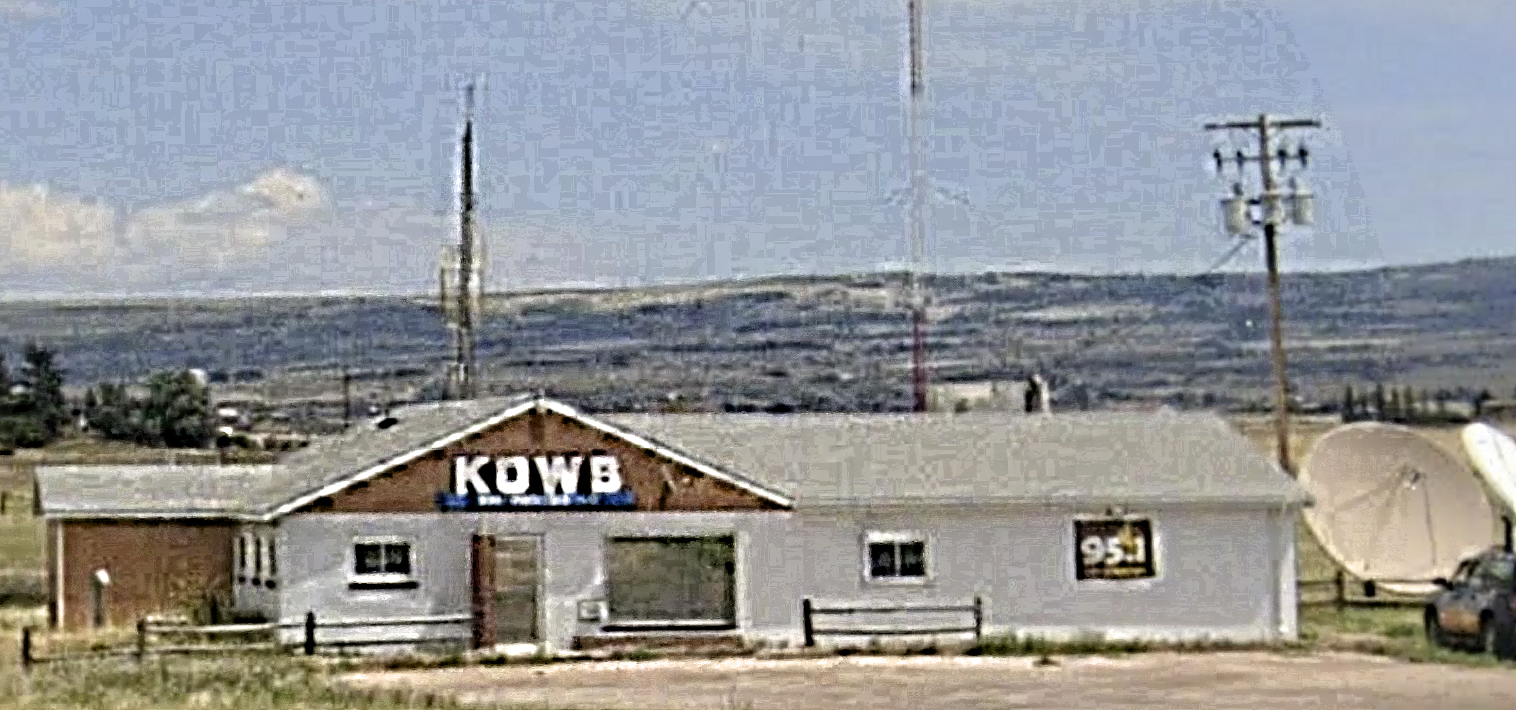KOWB on the edge of Laramie, Wyo. I began my radio career here, which included 4 days stuck in the station in a blizzard./Google Street View
By Phil Riske/Senior Reporter/Writer
Students in the Wallter Cronkite School of Journalism who want to become TV stars best take note of Kari Lake, who despite aa six figure salary was quick to criticize the media, unhappy with reporters’ tendencies to actually fact-check information.
More recently, Ryan Cody has left 12 News, announcing his exit in a tweet that mentions “professional toxicity” and mental healing.
So, where am I going with this?
Been there, done that
I tried the TV gig years ago, only to find it was not at all journalistically nourishing. Car wrecks, stabbings, fires.
I would have advised Lake, Cody and others who thought a TV anchor seat would bring fame and fufillment.
They screwed up.
Because they didn’t go into radio news.
I would not trade my career in small town radio for anything.
A career of fullfillment
Somehow John Wayne came up in a conversation I had, which prompted me to tell a friend about my experience with the movie idol. My friend said I should write a book about my memorable moments in journalism. I said no one would be interested in a book by a no-name Wyoming reporter.
His comment, however, did cause me to replay the video on my career in my head, and I decided some of my experiences might be interesting or amusing to some people.
So, here we go.
Most Memorable: The “Black 14 Incident”
At the University of Wyoming in 1969, 14 black football players were kicked off the football team after they appeared before the coach wearing black armbands to protest the Mormon Church’s long since-rescinded policy denying blacks to achieve the priesthood. Wyoming’s next game was against Mormon-owned Brigham Young University.
In short, the incident eventually resulted in a National Guard stakeout on campus after rumors violence would break out. In the end, the black players lost their civil rights claim in the U.S. Supreme Court.
Aiming for balance, I interviewed Dr. Willie Black, chancellor of the Black Student Alliance on campus and broadcast his comments on KOWB, which brought threats to the station’s management and pressure to fire me.
I survived but what a way to begin my very first reporting job.
Snowed in
There are no blizzards like those in Wyoming, and at KOWB, where I cut my teeth, we were stranded for four days because of 10-foot high snow drifts. We spent hours relaying hundreds of on-air messages to people who wondered where if their loved ones and friends were safe. Food was brought to us on snowmobiles from a hotel a couple miles from the station. I slept sporadically on my office floor.
Barry Goldwater
Sen. Barry Goldwater came to Laramie during his campaign for president and spoke to local reporters at the same hotel that fed us during the blizzard. I asked Goldwater what he would do about Viet Nam were he elected. His answer was close to “I’d make the f*****g place a parking lot.”
Murders I wrote
Murder was not common in Laramie, but I covered two of them at KOWB. One involved a barber who killed his wife, tied a large concrete block to her and dumped her in the same lake where the UW football players drowned. She later came to the surface, and husband Jess Alcala died in prison.
In a yet-to-be solved case, a young woman was killed in her apartment. The killer cut her throat from ear to ear. The sheriff told me he then did unmentionable things to her that certain animals do to their prey.
On the road too long
I had the opportunity to interview on KOJO the host of the long-running show “On the Road with Charles Kuralt. He claimed he was “nervous” being the interviewee instead of the interviewer. I most remembered from the session how badly his feet smelled. We had to spray the studio after he left.
John Wayne
John Wayne came through Laramie on a train that traveled the country to promote the movie “True Grit,” which also included Glen Campbell. At the train station, the head of the Laramie Chamber of Commerce presented Wayne with a cowboy hat. The movie-idol was so drunk, two people had to hold him up. I distinctly remember him slurring the words, “This is the nicest thing that has ever happened to me,” he declared in the KOWB microphone.
Campbell was not on the train because someone knocked out a front tooth in a fight in Los Angeles.
Least Memorable: The biggest embarrassment
In my final gig on radio, I interviewed Rep Mo Udall of Arizona on KKSA, Casa Grande. While I went to the restroom before the show, my assistant placed headphones on the congressman. As we began the interview, I noticed Udall was hunched over, with his face not that far from the table. This was shortly after the news of his Parkinson’s Disease had been made public, and I thought it had progressed to the point where he could not sit straight.
At the first commercial break, Udall asked if the cord on his headset could be lengthened. It had been caught under a leg of the table and was obviously too short for his comfort. And mine.
Now, put all this on TV.








